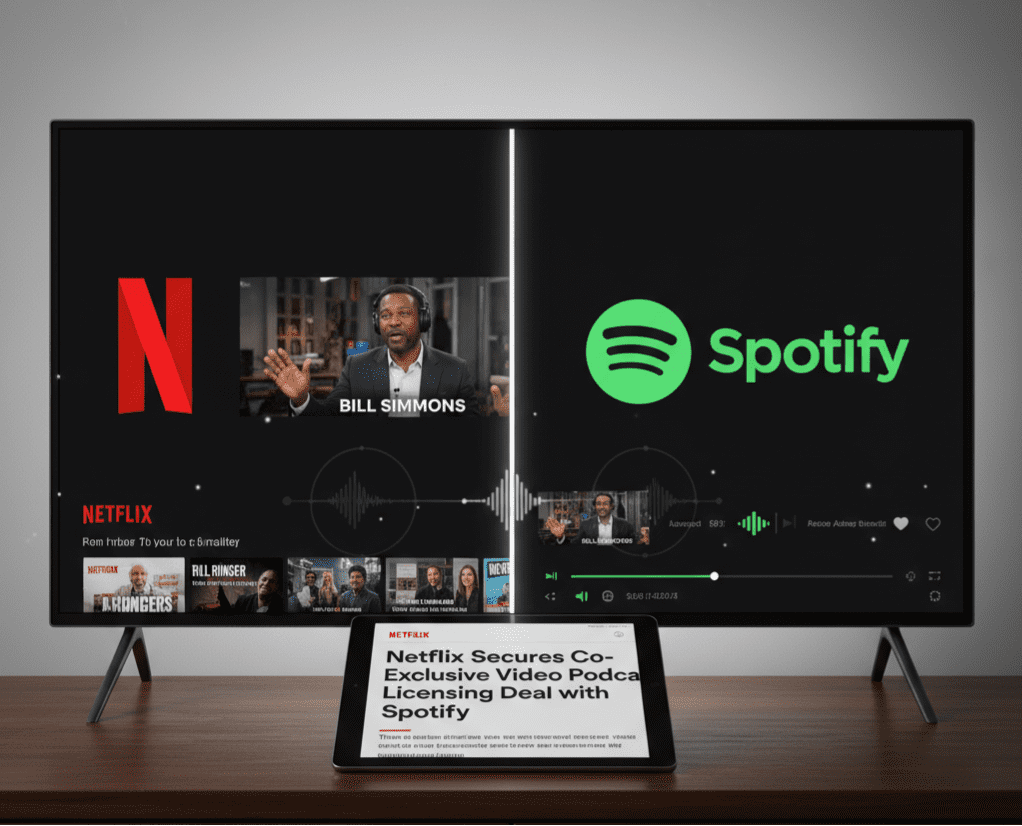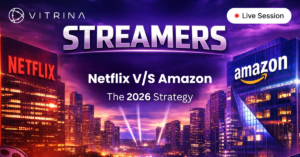Deal Overview
This is a content licensing and distribution partnership. Spotify is providing Netflix with the video rights to 16 established podcasts from Spotify Studios and its subsidiary, The Ringer. The content scope includes high-volume, non-scripted shows covering sports, culture, lifestyle, and true crime, such as The Bill Simmons Podcast and The Rewatchables. The platforms will share viewing access, making the video format co-exclusive on both the Netflix SVOD/AVOD service and the Spotify audio/video platform. Distribution begins in the U.S. in early 2026, with an international rollout planned soon after.
Parties & Dealmakers
The core companies are streaming platforms Netflix (the licensee/distributor) and Spotify (the licensor/content owner). The intellectual property originates from Spotify’s in-house division, Spotify Studios, and the influential network, The Ringer. The partnership was driven by executives from both platforms. Lauren Smith, Netflix VP of Content Licensing and Programming Strategy, noted the popularity of video podcasts and the value of bringing “full video versions of these top shows to both Netflix and Spotify audiences.” On Spotify’s side, Roman Wasenmüller, VP and Head of Podcasts, emphasized the deal “offers more choice to creators and unlocks a completely new distribution opportunity.”
Advantages, Uniqueness, Competition
The deal is a direct move by both companies to catch up with YouTube, which holds the dominant market position for video podcast consumption. For Netflix, this is a low-cost method to acquire a high-engagement, repeatable content library and fill a catalog white-space in non-scripted, conversational video, reducing reliance on expensive original talk show commissions. For Spotify, it validates its multi-billion-dollar podcast investment by leveraging Netflix’s vast global distribution to boost audience discovery and diversify monetization. This arrangement is unique in its specific co-exclusive strategy between an SVOD giant and an audio platform to pool video viewing and restrict a competitor like YouTube. Spotify’s parallel effort to make deals across the Media & Entertainment ecosystem, such as licensing content to Samsung TV Plus and partnering with ITV Studios Zoo 55 for shows like The Graham Norton Show, confirms its shift toward becoming a broad content platform.
Supply-Chain Impact
The acquisition of high-volume, non-scripted content acts as an additional source of a stable programming flow for Netflix between new scripted series launches. This directly supports the subscriber strategy by providing fresh, conversational content for both acquisition and retention. The partnership is a clear example of Spotify’s strategy to selectively license the video component of its content portfolio to major video platforms, while retaining audio control. This licensing pattern signals an end to the era of pure content-walling, favoring multi-platform exposure to maximize IP value and secure content advertising revenue.
Vitrina Perspective - Aggregation and Content Fragmentation is the New Model
This agreement should be viewed in the same strategic context as the recent content distribution deals in France, where streaming giants are integrating content from traditional broadcasters. For example, Netflix partnered with TF1 Group (June 2025) to integrate its live channels and VOD library for French subscribers, and Prime Video secured a similar deal with France Télévisions (July 2025). These alliances, including the Spotify deal, reflect an industry pivot where major streaming services are moving toward an aggregation model, using licensed third-party content—whether it’s linear TV, live sports, or video podcasts—to increase engagement, reduce subscriber churn, and scale their advertising inventories. Expect this trend of fragmented, multi-platform licensing to continue as a primary strategy in high-value, saturated markets globally.







